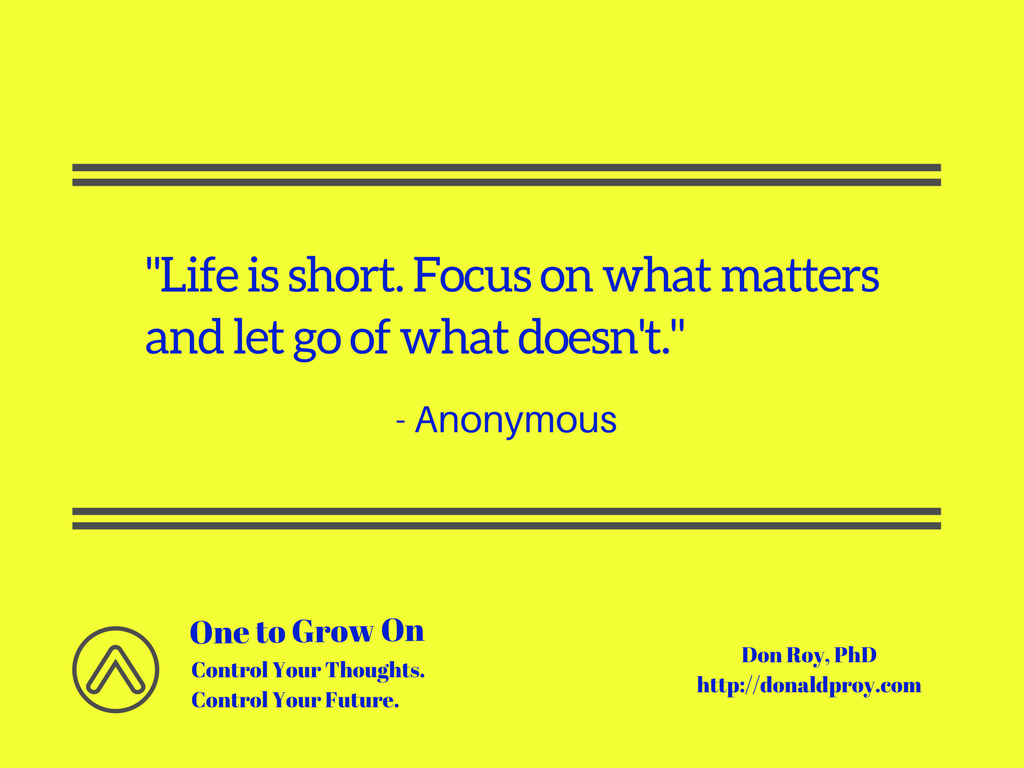Statistics attract me like a magnet sucks up a nail. Numbers packaged in a statistic can tell a story. The story is not always true, but that is another aspect of stats better left for another discussion. A statistic can drive home a point or idea, and I find them helpful for remembering information.
Two statistics stand out on the topic of personal goals. One stat has to do with setting goals; the other stat deals with goal achievement. First, statistics on goal setting make a clear point: The overwhelming majority of people do not have written goals. Author and success expert Brian Tracy says best estimates from research have found that only about three percent of adults write down their goals. That stat is disheartening to me as someone who is among the three percent and has experienced payoffs from having written goals.
The second stat may be even more disheartening. The probability of not achieving goals is high… very high. Researchers at the University of Scranton found that 92 percent of people who set New Year’s goals do not meet them. Maybe the 97 percent who do not have written goals are onto something. Why write down a goal if you probably will not achieve it, right?
The thought I am reflecting on this week is a challenge to rethink how we view goals. Author and success coach Joe Vitale suggests goals should contain a blend of fear and excitement. I’m all for goals being exciting, but should we deliberately include fear in them, too?
What Goals Do
Personally, I cannot imagine what life would be like without having written goals. Well, yes I can as I did not have written goals for the first thirty years of my life. I have accomplished exponentially more in the last twenty years with written goals than in the first thirty years of life without them. Why is that the case? Goals serve many purposes, but the three most important for me relate to direction, performance, and accountability.
- Goals give direction. The most precious resource we possess is time. You cannot buy more of it, nor can you borrow it from other people. Goals help allocate our time resources. They define priorities, clarifying how we should spend time.
- Goals “stretch” performance. A well-developed goal pushes us out of our comfort zone. We stretch to accomplish more than we have previously. Even when I fall short of achieving a goal, the effort expended in pursuit of it usually leads to growth in some way. It is this aspect of setting goals that Joe Vitale’s quote speaks to directly. A goal could instill some fear as it pushes us to forge new performance boundaries. But, the uncertainty of doing more or different things is usually offset by the benefits of getting there.
- Goals create accountability. If time is our most valuable resource, we must be accountable to ourselves for how we spend it. We are kidding ourselves if we opt not to be accountable for our actions and performance. Goals dictate what we need to do, and measuring to determine progress is a must.
Fear and Excitement
If you are convinced: a) you should have written goals, and b) they need to at the same time scare and excite you, what is next? Writing the goals, of course. But what should goals containing these two ingredients look like?
- Fear. Think of an accomplishment you would like to achieve, then observe any doubts (fear) you have to reach it. I often share the thought process I went through when I first considered setting a goal of earning a Ph.D. and becoming a college professor. It went something like this:
– “Pass a written comprehensive exam after two years of coursework. I can’t do that.”
– “Pass an oral exam in front a committee of faculty. I can’t do that.”
– “Develop a proposal for dissertation research and defend in front of my faculty committee. I can’t do that.”
As I reflect on my initial thoughts about meeting requirements for a Ph.D., I realize I never told myself why “I can’t do that.” It was just the standard response that came into my mind. Thankfully, I did not listen to myself!
That goal contained some fear. It would be the most challenging academic program in which I ever studied. Also, the goal entailed fear such as would my family adjust to a dramatic drop in income as well as moving to another state? Fear may or may not be motivational to you (it does not have to be). But, an element of fear or uncertainty in your goals is not only normal but desirable.
- Excitement. Goals should energize you. They represent a destination you want to reach. It is fun to think about being, doing, or having more than your current state. Without a plan and action, these thoughts are not goals but dreams. Goals motivate and spur action. That is why even when we fall short of a goal, we are usually better off and closer to achieving it than we were before setting the goal.
Be in the Minority
If you are not among the three percent of people who have written goals, you should join the club. Write goals that simultaneously scare and excite you… with a heavier dose of excitement than fear!





